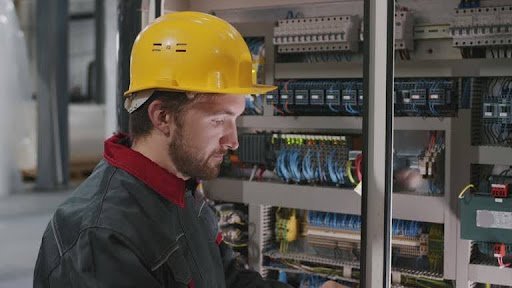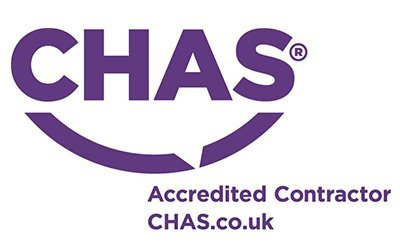Constructing a new medical facility is a demanding, high-stakes project requiring accuracy, compliance, and knowledge in all aspects of building. Among the several elements needed in a completely working healthcare setting, the electrical systems are fundamental. From 24/7 lighting to life-saving medical equipment to ventilation, emergency power backups, and communication networks—the success of a medical center depends on dependable, safe, and code-compliant electrical infrastructure.
Selecting the correct electrical contractor is a strategic choice that will affect safety, efficiency, cost, and regulatory clearance rather than just a box-ticking one. This article will specifically discuss precisely what to search for in an electrical contractor when establishing a new medical facility, with particular attention to why involving skilled commercial electrical contractors in London is so important.
Why the Right Electrical Contractor Matters for Medical Facilities
In hospital environments, electrical systems are not like those in retail stores or offices. They must support very sensitive, usually life-saving tools while preserving great uptime. Medical imaging equipment, ventilators, surgical instruments, and refrigeration for drugs, for instance, call for dedicated circuits, backup power, and specific layouts. These systems also have to satisfy rigorous health and safety standards, including hygiene, electromagnetic interference, and energy economy.
A competent contractor will guarantee:
- Following NHS policies, BS7671 (IET Wiring Regulations), and HTM (Health Technical Memoranda).
- System dependability to enable daily vital activities.
- Redundancy design for crises or power outage preparation.
- Future scalability with new technology and growth.
- Patient comfort and safety are made possible by noise-free systems, air management, and efficient lighting.
1. Specialisation in Healthcare Electrical Systems
Give healthcare electrical contractors that know the subtleties of hospital or clinic needs top priority when choosing a contractor. Specific regulations and setups needed in healthcare facilities may not be known to general commercial electricians. Contractors with a healthcare concentration have expertise about:
- Compliance with HTM 06-01 and 02 (UK health electrical standards).
- Medical IT systems, including segregated power sources in critical care units.
- Separated wiring systems to stop interference between circuits.
- Safe earth leakage restrictions help to safeguard patients.
They will also be adept at combining systems like medical gas alarms, nurse call stations, patient data lines, and other healthcare-specific electrical components.
2. Verifiable Experience in Medical and Commercial Constructions
Experience counts in something as complex as a medical center. Search London for commercial electrical contractors who have finished comparable medical projects with success. Request references or case studies proving their abilities to:
- Plan with mechanical engineers, architects, and IT consultants.
- Deliver projects both within budget and on time.
- Work in real hospital surroundings or sterile settings free from disturbance.
- Combine access control, fire alarms, CCTV, and BMS (Building Management Systems).
Working on challenging healthcare projects in London, contractors such as Bradley Scott Electrical have expertise ensuring they grasp the technical needs as well as the logistical difficulties.
3. Accreditation, Licensing, and Insurance
Check that any contractor you choose has the required credentials, insurance, and affiliations before calling them. A qualified hospital electrical contractor should have:
- For guaranteed electrical safety, NICEIC or ECA certification.
- participation in Constructionline Gold demonstrating methods of quality control.
- SafeContractor certification for health and safety compliance, CHAS.
- Public liability and professional indemnity insurance to offset hazards connected to projects.
These certifications provide you peace of mind by guaranteeing the contractor is working according to UK regulations and best practices, therefore lowering your responsibility.
4. Familiarity with NHS Standards and HTM Guidelines
In the UK, the National Health Service (NHS) has strict specifications for electrical systems in healthcare environments. These include:
- HTM 06-01 (Electrical Services Supply and Distribution).
- HTM 06-02 (Electrical Safety Guidance).
Your chosen contractor must not only be familiar with these but capable of integrating them into the overall design and execution plan. This ensures:
- Safety in patient treatment areas.
- Redundancy for life-critical systems.
- Testing and verification protocols before handover.
- Documentation for compliance audits.
Contractors like Bradley Scott Electrical are adept at following these standards during every project phase.
5. Comprehensive Project Management Capabilities
In a medical facility, electrical systems cannot exist apart. Plumbing, HVAC, fire suppression, IT infrastructure, architectural details must all be coordinated with them. Seek out contractors with great project management skills who can:
- Work with multidisciplinary groups.
- Prepare thorough Gantt charts and work schedules.
- Cut conflicts with BIM, or building information modeling.
- Control supply chain logistics for specialist electrical components.
- Keep active building sites within H&S regulations.
Turnkey solutions from design to commissioning provided by contractors are better as they simplify implementation and help to close communication gaps.
6. Emergency Power Planning and UPS Integration
Any hospital electrical system is fundamentally based on emergency power systems. Hospitals cannot afford to go dark in a blackout. Your contractor needs to be an expert in planning and building.
- Systems of fuel supplies and backup generators.
- Units for critical care environments: uninterruptible power supply (UPS).
- Automatic Transfer Switches (ATS) easily change power sources.
- Load prioritising will help to ensure that only necessary equipment runs.
To keep operational continuity and safety in any emergency, these systems have to be coupled with fire alarms, security, and HVAC systems.
7. Testing and Quality Guarantee
Every electrical system needs thorough testing and certification following installation. Check the contractor for:
- First Verification and Regular Inspection Reports.
- PAT tests every piece of installed machinery.
- Thermal imaging in search of possible hotspots.
- Reports on load balancing guarantee safe running conditions.
- As-built designs and O&M guidelines.
This material guarantees not only safety and functioning but also facilitates continuous maintenance and next developments.
8. Future-Proofing and Scalability
Rapid change in medical technology is driven by the contractor you select should construct for tomorrow as well as for today. Thus:
- Offering a versatile and modular electrical system.
- Leaving capacity for IT systems, additional circuits, and panels.
- providing innovative concepts able to interact with IoT and energy monitoring systems.
- Encouraging environmentally friendly options such as EV charging stations for ambulances or solar integration.
A facility prepared for the future guarantees operational flexibility and long-term financial savings.
9. Sustainability and Energy Efficiency
Sustainability is now a legal and ethical imperative. Look for contractors who can deliver:
- LED lighting and daylight sensors for reduced energy consumption.
- Smart HVAC and lighting controls.
- Low-loss transformers and high-efficiency switchgear.
- Energy metering and monitoring systems.
These choices not only reduce environmental impact but also lead to substantial cost savings on utility bills — a critical consideration for any healthcare organisation.
10. Local Knowledge and Fast Response Time
If you’re building in or around London, working with commercial electrical contractors in London gives you an edge. Local contractors:
- Have faster response times for inspections, emergencies, or design changes.
- Understand local council regulations and planning requirements.
- Are familiar with London’s utility infrastructure and can coordinate accordingly.
- Maintain strong relationships with suppliers, facilitating quick procurement.
A local presence also means quicker site visits, progress meetings, and smoother troubleshooting during or after the build.
Why Choose Bradley Scott Electrical?
When selecting a healthcare electrical contractor in London, experience, compliance, and trustworthiness matter. Bradley Scott Electrical offers:
- Over 25 years of experience in commercial and healthcare electrical installations.
- Full NICEIC-approved status and compliance with NHS and HTM standards.
- Proven track record across hospitals, dental clinics, laboratories, and care homes.
- Dedicated project managers for seamless communication and execution.
- Emergency power systems, testing services, and post-installation support.
Whether you’re building a private clinic, NHS facility, or specialist treatment center, Bradley Scott Electrical has the expertise to deliver safe, efficient, and future-proof electrical solutions.
Final Thoughts
Building a new medical facility is a large financial outlay; hence, cutting costs on electrical systems might have major, even fatal, results. Selecting specialist healthcare electrical contractors with industry certifications and demonstrated expertise helps you to guarantee that your project is finished on schedule, under budget, and in accordance with all standards.
Working with seasoned commercial electrical contractors in London, such as Bradyley Scott Electrical, guarantees that your healthcare facility is powered for performance – both now and long into the future – for people living in the city or nearby areas.
Need Expert Electrical Services for Your Medical Facility?
Contact Bradley Scott Electrical to discuss your healthcare project today.










